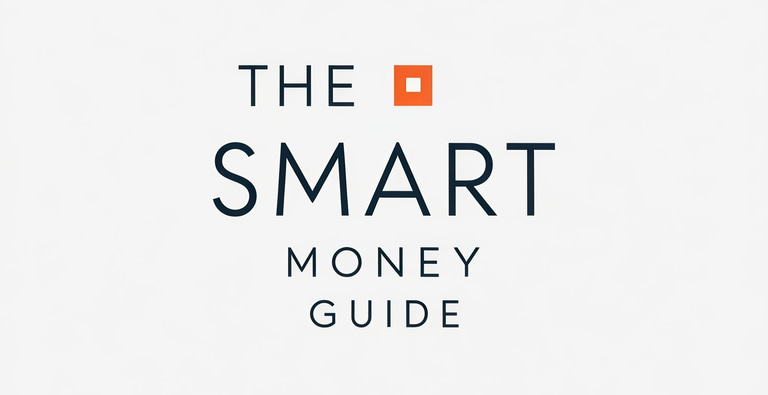Decoding Crypto: Your Guide to Cryptocurrency in 2025
CRYPTO
2/20/20253 min read


The digital revolution has touched nearly every aspect of our lives, and finance is no exception. Cryptocurrency, once a niche concept, has exploded into mainstream consciousness, promising a decentralized and potentially transformative future for money. But for beginners, the world of Bitcoin, Ethereum, and blockchain can feel overwhelming. This comprehensive guide, "Decoding Crypto," is designed to demystify cryptocurrency and equip you with the knowledge you need to navigate this exciting new landscape.
What Exactly Is Cryptocurrency?
At its core, cryptocurrency is digital or virtual money that uses cryptography for security. Think of it as a digital version of cash but with some key differences. Unlike traditional currencies issued by governments, cryptocurrencies operate independently, relying on a decentralized technology called blockchain.
Blockchain: The Foundation of Crypto
Imagine a shared digital ledger, accessible to anyone, where every transaction is recorded and verified. That's essentially the blockchain. It's a distributed database that maintains a continuously growing list of records, called blocks, which are linked and secured using cryptography. This decentralized nature makes it incredibly difficult to tamper with or counterfeit, as any change would require simultaneously altering the ledger on thousands of computers. This transparency and security are the cornerstones of cryptocurrency's appeal.
Why is Cryptocurrency So Popular?
Several factors contribute to the rising popularity of crypto:
Decentralization: No single entity, like a bank or government, controls cryptocurrency. This offers users greater autonomy and control over their finances.
Transparency: All transactions are recorded on the public blockchain, providing a high level of transparency.
Accessibility: Cryptocurrency can be accessed by anyone with an internet connection, potentially offering financial inclusion to those underserved by traditional banking.
Potential for Growth: While volatile, cryptocurrencies have shown the potential for significant returns, attracting investors seeking new opportunities.
Navigating the Crypto Jargon: A Beginner's Glossary
Before diving deeper, let's decode some essential terms:
Wallet: A digital wallet is where you store your cryptocurrencies. It's not like a physical wallet; instead, it contains the private keys that allow you to access and manage your crypto.
Private Key: A secret code that grants access to your crypto. Think of it as the password to your digital wallet. Never share your private key with anyone.
Public Key: A code that you can share with others so they can send you cryptocurrency. It's similar to a bank account number.
Mining: The process of verifying and adding transactions to the blockchain. Miners are rewarded with cryptocurrency for their work.
Exchange: A platform where you can buy, sell, and trade cryptocurrencies.
HODL: A slang term meaning "hold on for dear life," used by crypto enthusiasts who hold their investments despite market volatility.
Getting Started: Buying Your First Cryptocurrency
The first step to entering the crypto world is choosing a reputable exchange. Here are some beginner-friendly options:
It's crucial to conduct your own research before choosing an exchange. Factors to consider include security, fees, user interface, supported cryptocurrencies, and customer support.
Setting Up Your First Crypto Wallet
Once you've purchased cryptocurrency, you'll need a wallet to store it securely. Here's a step-by-step guide to setting up a software wallet (a good option for beginners):
Choose a reputable wallet: Research different software wallets and select one that suits your needs. Popular options include Exodus, Trust Wallet, and MetaMask.
Download and install the wallet: Download the wallet app from the official website or app store. Be extremely cautious of fake wallet apps.
Create a new wallet: Open the app and follow the instructions to create a new wallet.
Write down your seed phrase: You'll be given a list of words, called a seed phrase or recovery phrase. This is the only way to recover your wallet if you lose your device or password. Store it in a safe place, offline, and never share it with anyone.
Fund your wallet: Transfer your cryptocurrency from the exchange to your wallet using your public key.
Understanding the Risks and Rewards
Investing in cryptocurrency comes with both potential rewards and significant risks:
Volatility: The crypto market is highly volatile, with prices fluctuating dramatically. Be prepared for potential losses.
Security: While blockchain technology is secure, individual wallets and exchanges can be vulnerable to hacking. Take precautions to protect your crypto.
Regulation: The regulatory landscape for cryptocurrency is still evolving, which can create uncertainty.
Tips for Beginner Crypto Investors:
Start small: Don't invest more than you can afford to lose.
Do your research: Understand the projects you're investing in.
Diversify your portfolio: Don't put all your eggs in one basket.
Be patient: Crypto investing is a long-term game.
Stay informed: Keep up-to-date with the latest news and developments in the crypto space.
The Future of Cryptocurrency
Cryptocurrency has the potential to revolutionize finance, offering a more decentralized, transparent, and accessible system. While challenges remain, the technology continues to evolve, and its impact on the global economy is likely to grow in the years to come.
Ready to explore the world of crypto? Start by researching reputable exchanges and setting up your first wallet. Remember, knowledge is power in the crypto space. Continue learning, stay informed, and approach investing with caution.
Connect
Join our community for financial insights and helpful tips.
Newsletter
© 2024. All rights reserved.
Get the latest financial tips and insights.
